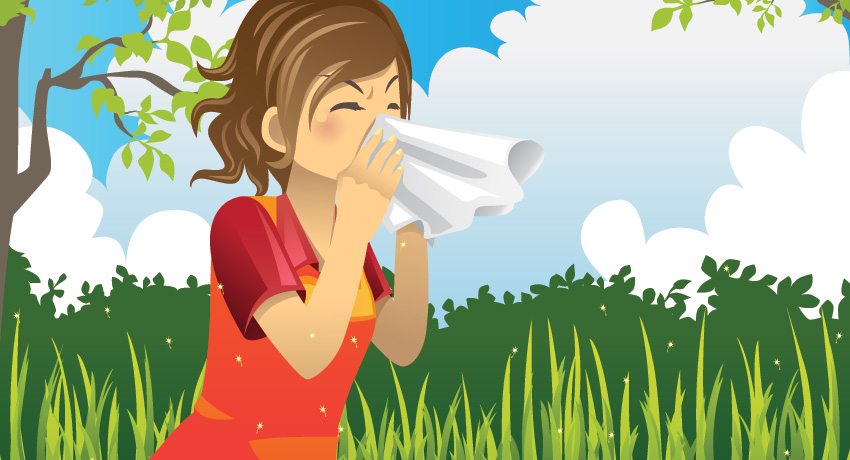Tips for Controlling Allergies

Illustration via Shutterstock
Just when it’s warm enough to open our windows and let some fresh air in, the sneezing starts. Then comes the itchy eyes and the next thing you know it’s time to close the windows again because your allergies are acting up. We asked Dr. Karen Hsu Blatman, a physician in the Department of Allergy and Immunology at Brigham and Women’s Hospital, for some tips on how to reduce allergy symptoms.
Hsu Blatman says that the most common spring allergy is hay fever, which is caused by allergens like mold and pollen, affecting almost 50 million Americans. Common symptoms include sneezing and nasal congestion. Other springtime allergy symptoms include red, itchy eyes, (known as allergic conjunctivitis), and asthma flare ups.
How do you know if you are allergic? Hsu Blatman says that you may need an allergy test. “I think it’s really nice to have people come in for an allergy test, only because then we can find out what they are allergic to, and that really helps us tailor that to each person,” she says. “I hear other people saying, ‘these covers are really good for dust mites’ but if you’re not allergic to dust mites, you don’t need to put in the money. For us, to do the testing, it’s once. And I think that it gives us a lot of information, it helps us tailor any sort of medicine.”
To keep allergies at bay, Hsu Blatman recommends:
- Keep pollen under control by washing bedding every week in hot water. Wash your hair and shower before going to bed, since pollen can accumulate in hair.
- Clean every surface in your home.
- Wear a mask and gloves when cleaning, vacuuming, or painting to limit dust and chemical exposure. Vacuum twice a week.
- Wash rugs.
- Limit throw rugs to reduce dust and mold.
- Keep indoor air clean by closing windows to prevent pollen from entering the house. Change filters in air conditioning units and vents frequently this time of year.
- Talk to your doctor about a seasonal allergy drug that may be appropriate for your symptoms.

